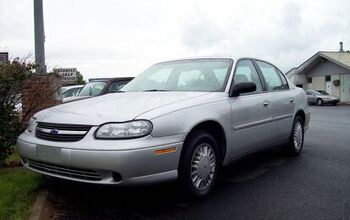Hammer Time: Are Shareholders Worth It?
Capitalism has no loyalties.
Everybody is replaceable.
Products. Employees. Employers. Services. Alliances. Joint Ventures. Financiers. Even the executives of multinational firms along with their board of directors are only as good as whatever quarterly numbers can be cooked up by their ‘independent’ auditing firm.
Capitalism is the ultimate “Let’s go!”, “Do it!” and “Screw you!” of economic systems. You name the angle or need in capitalism, and chances are that there is a market substitute that can immediately fill the gap. Even government regulations can be routinely challenged by trade organizations, international courts, and the all too common political handshake.
All this reality happens… on paper.
The truth is that capitalism is tempered by the culture where it’s practiced.
In the world we live in today, corporations and industry interests always pursue laws and relationships to protect their gotten gains. The ultimate goal of some companies isn’t progress. But to keep certain competitors and market substitutes far away from the hands of the free market.
Consumer first? Hell no! Earnings first? Hell yes! This brutal reality of corporate self-interest brings on a few tough questions when it comes to the American auto industry in particular.
Everyone has their own hierarchy of worthiness when it comes to an automaker’s success. Bonuses, dividends, stock options and pensions are all realigned to account for the rewards of good work. So with that in mind, let me have you think about a question that has bugged me now for several years.
Are individual shareholders worth it?
As I look through the recent history of our industry, I am having trouble figuring out a single scenario where individual public shareholders made the difference. Ross Perot couldn’t kick Roger Smith’a ass into gear. Lee Iacocca and Kirk Kerkorian were the crown jesters of a pointless takeover exercise. As for Ford, wasn’t the fact that the Ford family held sway the major reason why an industry outsider like Alan Mulally was successful at restructuring the company? He didn’t need to worry about holding off on a strategy, or hiring some lackey to his management team, just because some schmuck with a big block of stock thought he knew more.
Smaller shareholders are nothing more than gamblers. If something bad happens, they are the last to know and for good reason. They don’t know anything. Even if they did, their shares don’t enable them to help create that change. I can’t think of one solitary situation in the last 50 years where a small shareholder has been able to make a difference in any automobile company.
Who has offered the greatest stability and success in the long run? In our industry it may very well solely rest in the wiser and more patient hands of the family controlled business.
The most successful Japanese auto company is owned by the Toyoda family. The most successful European company, Volkswagen, is ruled by Porsche Automobil Holding. A German holding company owned by the Porsche families.
As for American manufacturers, only Ford, a company controlled by the Ford family for well over a century, was able to survive the 2008 meltdown without a direct bailout. The shareholders did nothing but lose all their money and offer many of us a golden opportunity to short their stocks. John Q Public and Cerberus were inevitably replaced by the unions, Fiat, and Uncle Sam.
Could individuals shareholders ever make a difference in this business? If not, do they simply make it easier for the family with limited resources to control the business?
Instead of offering a reflexive yes/no based on ideological allegiance, I want you to also think about the financial issues. We are in a heavily cyclical industry. White knights, along with new leaders, have helped save nearly every automaker from bankruptcy or a hostile takeover at one time or another.
But can this defense be better executed with a family that has their own name and reputation to defend? Instead of a bunch of shareholders who are in it simply for the stock price?
My answer is yes. I think small shareholders serve as nothing more than a money pool for those who are doing the real work. In a well-run organization they offer liquidity. In good times, they get dividends and stock appreciation. In bad times, they usually don’t have any means to change the running of a car business for the better. This business has far too many influencers on too many levels for public shareholders to effect change.
Am I wrong?
Author’s Note: Even when Steve is wrong you can reach him at Steve.lang@thetruthaboutcars.com
More by Steven Lang
Latest Car Reviews
Read moreLatest Product Reviews
Read moreRecent Comments
- Daniel J The real problem I see is it's about 8K too much. I'd prefer a lower trim but they don't offer enough HP for my tastes.
- Teddyc73 Beautiful color, although the overused black wheels detract from it. It's nice to see a car in an interesting color instead of the also grossly overused dull greys.
- Master Baiter If you rear-end someone, it's your fault, period. If motorcycles need more time to stop, then riders need to increase their following distance.
- Master Baiter Until recently, virtually every cell phone and computer was made in China and no one seemed to care. The majority are still built there. I'm not a fan of tariffs as it just gives domestic makers a price umbrella to sell their garbage products to U.S. consumers at higher prices.
- Teleedle It would seem that if the Chinese made cars and trucks are ready to compete on the world market that they should be able to compete without the need for government help through subsidies. That's never going to happen with the mindset of their leadership. The rate at which they've transferred the ability to copy to the rate of their abilities to innovate isn't really astounding, but it is truly indicative of their inherent abilities to see through problems and overcome without a lot of fuss. They just have a different way that seems to continually baffle the Western mind. It only goes back a few thousand years. The rest of the world just has to catch up... Without tariffs, three Seagulls could be bought for the price of one loaded Toyota Corolla. I would settle for a nice small pickup truck that can get 30-35 mpg, if the Chinese want to build something with real durability and value. I'm sure they can do that for about $10-12k US, too, dumping them all the way to the bank. Neither Trump or Biden or Bugbrain want that, though. Restrictive 'targeted' tariff ideas indicate that they all want protectionism and the Chicken Tax to continue. The price of living in freedum in the non compete world... and the hallmark of one upmanship by the political class towards more and more expensive transportation related needs. All costs are ALWAYS passed onto the end consumer. Tariffs are the burden of the extra cost. Tariffs are punitive, remember... as intended. The political class is still living off the backs of their constituents throughout the world... same as it ever was.

































Comments
Join the conversation
I completely agree with your observations. Companies like Ford with even a residual family tie clearly have much more survival instinct than the others. Many scholars refer to this as "the agency problem". The interests of management and ownership get crosswise. Nobody really seems to know how to fix it. It has been a problem for centuries if not longer. Think the absentee lord of the manor and his overseer.
Ronnie, is that you? LOL. At least if you buy preferred stock, you get your money before the regular stockholders. But you're probably better to pool your money with a bunch of other people, and experience the economies of scale within a mutual fund.